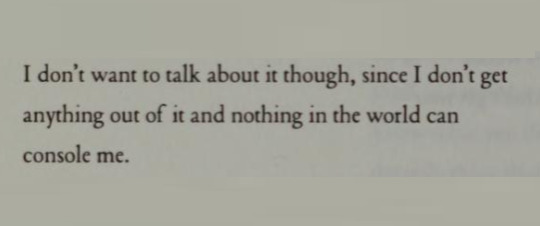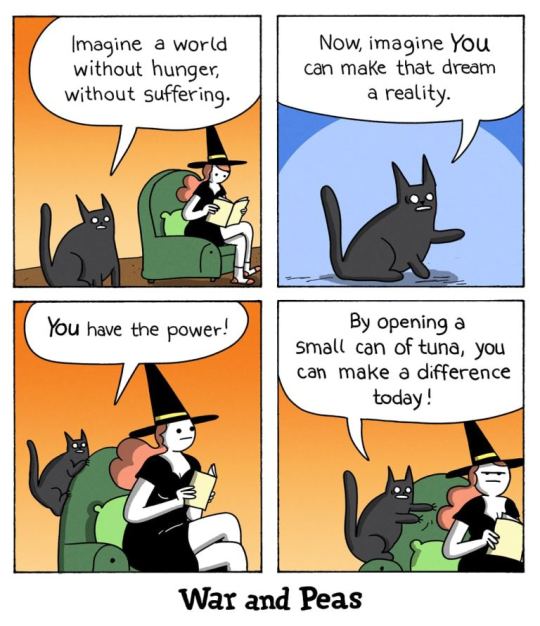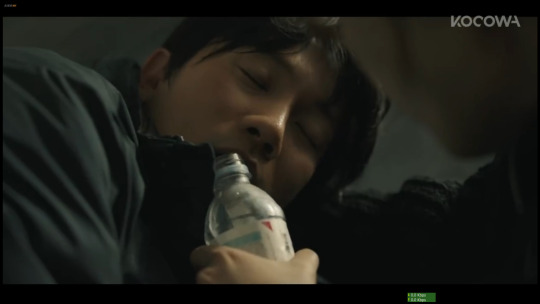#suffering
Text

#writers on tumblr#writing#life#poetry#literature#artists on tumblr#spilled writing#spilled poetry#spilled words#spilled thoughts#spilled ink#love#poetic#heartbreak#brown eyes#love quotes#dark academia#light academia#dark aesthetic#web weaving#web writing#writeblr#reddit#lit#fav#q#deep thoughts#agony#longing#suffering
140 notes
·
View notes
Quote
A superficial observer knows that the best things in life are hard to attain. ... The fact is, the more alluring an end we have in view, the more risks and horrors we must undertake to get there. May we not also make a contrary suggestion: that behind every danger something good is hidden, and that therefore danger serves as an indication, a mark to guide us onwards, not as a warning, as we are taught to believe.
Lev Shestov, All Things Are Possible
54 notes
·
View notes
Text
Joy of Life Season Two ep30
Stapped, fought, spit blood and collapsed
#whump#whumper#asian whump#emotional whump#suffering#drama#whumpee#asian whumper#chinese drama#joy of life#zhang rounan#joy of life season two#stabbed#spit blood#collapsed#fainted#fought#defiant whumpee#whump tropes#whump community
23 notes
·
View notes
Text
The most serious thing remains to be said and it is not yet today that you will find me "in love, open, melting"; it is not yet tonight that I will write to you with "joy, brightness, glory", in spite of all the forests of "olive trees of kisses" that you want to put on my face and all the mastic trees in the world! I leave for tomorrow the care to explain clearly that you did not understand anything in my last letter, to tell you that it "often" happened to me to "think coldly" to try to make you understand my "real and lucid desires" and "what is lucid" and "what is constant and true under my changes".
This is a difficult task to carry out at a distance and quite dangerous when one thinks of the state in which you are reduced. For, my dear love, with your strength and health, with your "fatal and vigorous air", I see with pleasure that you are also recovering your good, solid, Algerian stupidity. Oh! I understand! I understand so many things, and you are constantly emptying yourself, my poor darling! I know! You work! Your essay must exhaust a great deal of your intellectual strength! And then, the rest, isn't it, it's tiring! But don't worry, go on! The little glimmer will come back to shine in the depths of your thoughts and one day - oh miracle! - I will speak to you in half a word... and... you will understand! I am changeable! O rock!
Since you left, you have spent your time asking me for some reason not to write to you if it would tire or annoy me or torture me or... I don't know what. When, by chance, one day, you don't receive any news, it's a debacle, doubts, dark ideas of the future, more doubts, madness! And you find my letters mean, when, having received from you, for a week, only two small ones every other day I complain at last that the mail is not working well! Since you left, you have been telling me to live as much as I can, to go out, to entertain myself, etc. Now, because I'm going to spend two miserable hours in Iberia, dragged along in spite of myself by some nice friends, and I drink a whiskey and dance a rumba you dare to write to me: "Poor me!" That's all that you found to say to encourage me to start again and as you feel that, I have to spend my energies somewhere and not completely wither. You now advise me to take up SPORT! And the SWIMMING POOL! I hate it! No! But... Do you want to make me die! Do you want to make me catch double pneumonia? The pool! In this cold! And where to find time to go to the pool! But what is the matter with you!
I can see your face if one day I follow your advice word for word and you receive a letter in which I praise you with warmth (as far as possible!), the joys of swimming, of naked and wet bodies, of water on the skin, wet hair and glances lost on a pair of beautiful legs! Ah, well, if I didn't have other things to worry about, I'd make the effort of swallowing a few sips of chlorine, just for the result! It would be pretty! Notice that while you're feeling sorry for yourself and [complaining] about yourself, you are tasting whiskey, wandering through dances and noticing American women who want to do you good! It is perfect!!! But that's still nothing! Not only are you stupid as a sink, unfair, a pain in the ass (I hope you understand the meaning of this word, which I can't write in full) but, to make matters worse, you are naughty! - I am copying exactly one of your sentences: "You would do the worst things, and against our very love, despite a suffering that I am physically afraid of because I know it so well, I would still love you and stay close to you."
I thank you, my darling, for the general meaning of the sentence, but since I think you love me, I never doubted that it was so. It seems to me obvious that at the point we have reached, errors or blindness of a certain kind can no longer do anything more against our union than to cause excruciating suffering. I am less grateful to you for the little parenthesis "so much I know her". It seems to me that you exaggerate or distort. But all these little impressions disappear before the enormity that follows: "These are reckless words (in all respects) and before pronouncing them I thought a lot about them." How about that! The very fact of speaking of imprudence in a love like ours amazes me, but the parenthesis (again!) that allows me to believe that I could use your words to consider myself free to do things against our love, that is beyond anything else! That is beyond the worst that one can imagine!
But no! I must not get angry! I must not! It is always the rest, your fatal and vigorous air, your trial, that are the cause of everything! You are stupid, my poor darling! And you have to wait for it to pass! That is all. Ah! I am beginning to feel lighter. As I told you, I leave the serious things for tomorrow, because tonight it is already 2 o'clock and my day has been hard. All this is exhausting and I am tired.
Good evening, Algerian! Good evening, my love, my beautiful love beast. Good evening, my darling. Curled up in you, your legs mixed with mine (alas if it could be true!) I will fall asleep and try to dream of a pool where you would be lying, fresh and wet, against me. I love you. I love you. I would also like to hold you in my arms and watch you sleep. You see how chaste I am! Unfortunately I believe that I would wake you up slowly, but quickly! See you tomorrow, my darling.
Maria Casarès to Albert Camus, Correspondance, February 14, 1950 [#193]
#albert camus#camus#absurd#absurdism#maria casares#correspondance#love letters#love#joy#desire#strength#future#madness#suffering#angry#pool
19 notes
·
View notes
Text


Jane O. Wayne // Kate Jacobs
#Jane O. Wayne#Kate Jacobs#quotes#dark academia#chaotic academia#classic literature#light academia#book quotes#poetry#classic academia#suffering
44K notes
·
View notes
Text

Frida Kahlo, from a letter wr. c. November 1933, featured in The Letters of Frida Kahlo: Cartas Apasionadas
#frida kahlo#letters#writings#suffering#selections#big november mood i'd say#the letters of frida kahlo: cartas apasionadas#p
11K notes
·
View notes
Text
"The idea of reforming Omelas is a pleasant idea, to be sure, but it is one that Le Guin herself specifically tells us is not an option. No reform of Omelas is possible — at least, not without destroying Omelas itself:
If the child were brought up into the sunlight out of that vile place, if it were cleaned and fed and comforted, that would be a good thing, indeed; but if it were done, in that day and hour all the prosperity and beauty and delight of Omelas would wither and be destroyed. Those are the terms.
'Those are the terms', indeed. Le Guin’s original story is careful to cast the underlying evil of Omelas as un-addressable — not, as some have suggested, to 'cheat' or create a false dilemma, but as an intentionally insurmountable challenge to the reader. The premise of Omelas feels unfair because it is meant to be unfair. Instead of racing to find a clever solution ('Free the child! Replace it with a robot! Have everyone suffer a little bit instead of one person all at once!'), the reader is forced to consider how they might cope with moral injustice that is so foundational to their very way of life that it cannot be undone. Confronted with the choice to give up your entire way of life or allow someone else to suffer, what do you do? Do you stay and enjoy the fruits of their pain? Or do you reject this devil’s compromise at your own expense, even knowing that it may not even help? And through implication, we are then forced to consider whether we are — at this very moment! — already in exactly this situation. At what cost does our happiness come? And, even more significantly, at whose expense? And what, in fact, can be done? Can anything?
This is the essential and agonizing question that Le Guin poses, and we avoid it at our peril. It’s easy, but thoroughly besides the point, to say — as the narrator of 'The Ones Who Don’t Walk Away' does — that you would simply keep the nice things about Omelas, and work to address the bad. You might as well say that you would solve the trolley problem by putting rockets on the trolley and having it jump over the people tied to the tracks. Le Guin’s challenge is one that can only be resolved by introspection, because the challenge is one levied against the discomforting awareness of our own complicity; to 'reject the premise' is to reject this (all too real) discomfort in favor of empty wish fulfillment. A happy fairytale about the nobility of our imagined efforts against a hypothetical evil profits no one but ourselves (and I would argue that in the long run it robs us as well).
But in addition to being morally evasive, treating Omelas as a puzzle to be solved (or as a piece of straightforward didactic moralism) also flattens the depth of the original story. We are not really meant to understand Le Guin’s 'walking away' as a literal abandonment of a problem, nor as a self-satisfied 'Sounds bad, but I’m outta here', the way Vivier’s response piece or others of its ilk do; rather, it is framed as a rejection of complacency. This is why those who leave are shown not as triumphant heroes, but as harried and desperate fools; hopeless, troubled souls setting forth on a journey that may well be doomed from the start — because isn’t that the fate of most people who set out to fight the injustices they see, and that they cannot help but see once they have been made aware of it? The story is a metaphor, not a math problem, and 'walking away' might just as easily encompass any form of sincere and fully committed struggle against injustice: a lonely, often thankless journey, yet one which is no less essential for its difficulty."
- Kurt Schiller, from "Omelas, Je T'aime." Blood Knife, 8 July 2022.
#kurt schiller#ursula k. le guin#quote#quotations#the ones who walk away from omelas#trolley problem#activism#introspection#discomfort#reform#revolution#suffering#ethics#morality
10K notes
·
View notes
Text


oh, my clematis // cure
twitter ✦ etsy ✦ instagram
2K notes
·
View notes
Text
Imagine

View On WordPress
#black cat#cat#comic#comic strip#funny#humor#lord nibbles#Slutty Witch#Suffering#tuna#witch#witches#Witchy
2K notes
·
View notes
Text

breakdown
2K notes
·
View notes
Text

NEED this tattoo
#lana del rey#girlblogging#ultraviolence#suffering#girl interrupted#lost between realities#girly blog#cinnamon girl#female hysteria#female urge#just girly posts#hell is a teenage girl#need vodka rn#dollette#coquette girl#coquette#lana del rey aka lizzy grant#shades of cool
1K notes
·
View notes
Text

1K notes
·
View notes
Text
Ji Sung's new drama is all whump three episodes now he's dizzy fainting all the time because of his new addiction

#whump#whumper#asian whump#emotional whump#suffering#drama#whumpee#asian whumper#kdrama#Jisung#connction drama
25 notes
·
View notes
Quote
You should care about things in a way that makes it a possibility that tragedy will happen to you. If you hold your commitments lightly, in such a way that you can always divest yourself from one or the other of them if they conflict, then it doesn’t hurt you when things go badly. But you want people to live their lives with a deep seriousness of commitment: not to adjust their desires to the way the world actually goes, but rather to try to wrest from the world the good life that they desire. And sometimes that does lead them into tragedy.
Martha Nussbaum, in A World of Ideas, by Bill Moyers
#philosophy#quotes#Martha Nussbaum#A World of Ideas#life#attention#caring#values#desires#tragedy#suffering#meaning#purpose
2K notes
·
View notes
Text

-Frida Kahlo
#frida kahlo#dark academia#spilled words#words#suffering#light academia#dark aesthetic#romantic academia#love quotes#quoteoftheday#quotes#oldschoolromantics
999 notes
·
View notes
Text

Katherine Larson, from Radial Symmetry; “Almost a figure”
[Text ID: “Forgive me this old / habit. There is a danger / in making suffering / beautiful.”]
#katherine larson#suffering#excerpts#writings#literature#poetry#fragments#selections#words#quotes#lit#typography#poetry collection#american poetry#american literature
15K notes
·
View notes